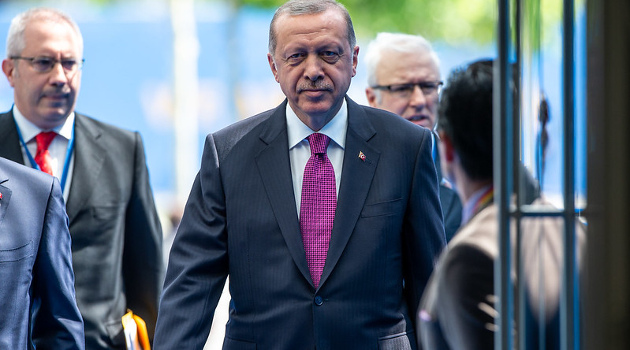What’s the track record of Modern Monetary Theory (MMT), which is based on using money-printing by central banks to finance bigger government?
This quack theory is ideal for politicians like Bernie Sanders and AOC, but what happens when countries follow that approach.
The results are not positive.
- It was a miserable failure in Zimbabwe.
- It was a miserable failure in Argentina.
- It was a miserable failure in Sri Lanka.
- It was a miserable failure in Venezuela.
And now we know it is a miserable failure in Turkey (or Türkiye), where inflation has climbed so high that Jimmy Carter and Joe Biden seem like hard-money advocates by comparison.
Here are some excerpts from Desmond Lachman’s column in the New York Post last month, which explains that the country’s populist president is finally realizing that there’s no free lunch.
With Turkey’s inflation surging and a balance-of-payments crisis looming, President Recep Tayyip Erdogan has been forced to backpedal hard on his highly unorthodox economic policy by finally allowing the central bank to hike interest rates to a jaw-dropping 25%, a 7.5 percentage-point jump. This makes it all too likely that the chickens of Erdogan’s prolonged period of economic mismanagement will soon come home to roost in the form of a very hard Turkish economic landing. …In recent years, Erdogan’s economic policy approach has rested on his strongly held belief that far from helping to combat high inflation, high interest rates were inflation’s principal cause. This induced him over the past year to pressure the central bank to progressively more than halve interest rates to 8.5% at a time when inflation was climbing to as high as 60%. …Aside from causing the economy to overheat and inflation to soar, Erdogan’s approach caused the currency, the Turkish lira, to plummet and Turkey’s balance of payments to deteriorate.
I don’t want the Turkish people to suffer, but there is a silver lining to their misfortune.
As explained in an article in the U.K.-based Economist, some politicians and bureaucrats in other nations have been thinking that Erdogan’s policy could be a role model.
Turkey’s economy does not obviously inspire emulation. Over the past five years it has been battered by soaring annual inflation, which hit 86% in October. …last month the currency plummeted to an all-time low against the dollar. To make matters worse, Recep Tayyip Erdogan, Turkey’s president, is about to make good on some expensive promises following an unexpected election victory in May. The bill will probably plunge the government…deep into the red. …Mr Erdogan…insists that lowering interest rates is the key to fighting inflation, rather than tightening the screws. …This chaos reflects the upside-down monetary policy pursued by Mr Erdogan. …This has not stopped Mr Erdogan’s ideas catching on in the finance ministries of the developing world. “I truly wonder whether classical theories are the way to continue,” muses Ken Ofori-Atta, Ghana’s finance minister, who is one of several African ministers pondering such ideas. “We have to get rates low and growth going,” shrugged another at a recent summit on green finance in Paris. In the past month, officials in Brazil and Pakistan have expressed similar sentiments.
Let’s hope that politicians and bureaucrats in other nations now realize that financing big government with a printing press (sometimes referred to as fiscal dominance) is a bad idea.
And if they learn that lesson, maybe the next step is teaching them that it’s also a bad idea to finance big government with higher taxes or red ink.
———
Image credit: NATO | CC BY-NC-ND 2.0.




